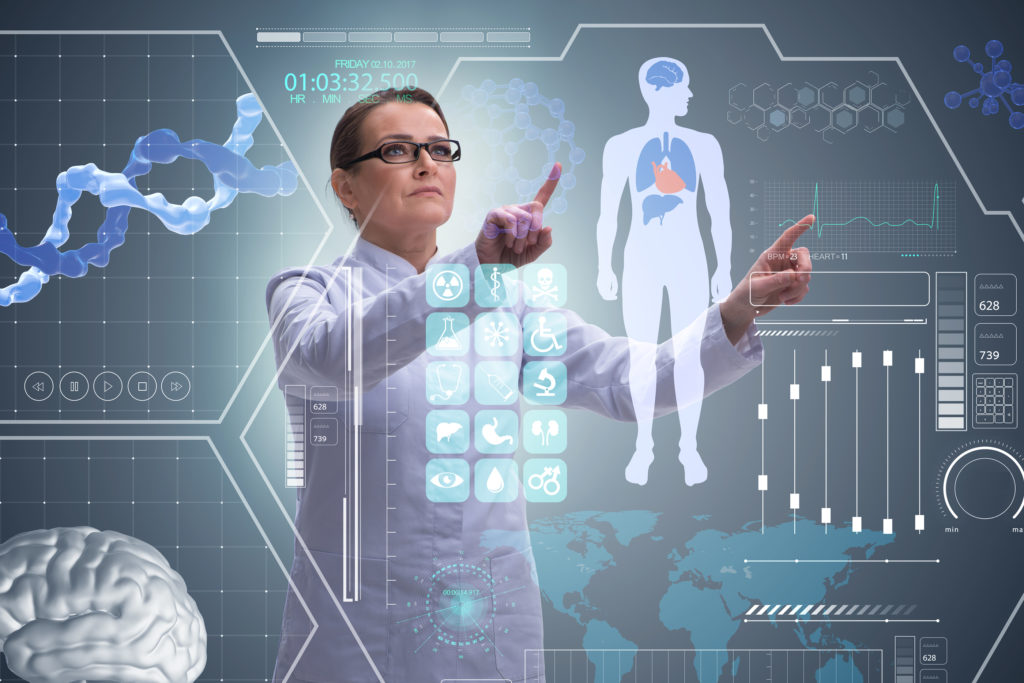Sometime in the future, Artificial Intelligence (AI) will disrupt healthcare as we know it, but not in the ways most people think. Many fear machines will replace or even turn on humans. But the speed with which computer intelligence is advancing offers far more opportunities than dangers.
AI Variants
Today, AI is shorthand for any task a computer can perform just as well as, if not better than, humans. But there are different forms of AI to consider:
- Most computer-generated solutions now emerging in healthcare rely on human-created algorithms for analyzing data and recommending treatments, not on independent computer intelligence.
- Machine learning relies on neural networks (a computer system modeled on the human brain), to simulate and even expand on the way the human mind processes data. As a result, not even the programmers can be sure how their computer programs will derive solutions.
- In deep learning, which is becoming increasingly useful in healthcare, software learns to recognize patterns in distinct layers. Because each neural-network layer operates both independently and in concert – separating aspects such as color, size and shape before integrating the outcomes – these newer visual tools hold the promise of transforming diagnostic medicine and can even search for cancer at the individual cell level.
Is it All Hype?
AI has been around since 1956, but has made precious few contributions to medical practice. Only recently has the hype begun to merge with reality.
AI hype includes a host of sophisticated new solutions from nurse-bots to AInsurance (insurance powered by AI), to AI wearables for the elderly, to name a few. In general, they’re algorithmic and not true machine-learning approaches. Nearly all have failed to move the needle on quality outcomes or life expectancy.
However, if computer speeds double another five times over the next 10 years, machine-learning tools and inexpensive diagnostic software could soon become as essential to physicians as the stethoscope was in the past.
Deep learning could be the very thing that catapults American healthcare into the future, helping to clarify the best care approaches, creating new approaches for diagnosing and treating hundreds of medical problems, and measuring doctor adherence without the faulty biases of the human mind.
The Hard Truth
Just as Uber and Lyft impacted the taxi industry and robotics the manufacturing industry, technology will have an impact on healthcare.
If technology is going to improve quality and lower costs in healthcare, some healthcare jobs will disappear. According to one study, AI is set to take over 47% of the US employment market within 20 years. Though blue-collar jobs have been in technology’s cross hairs for some time, doctors and other healthcare professionals are starting to feel the pressure, as well.
Over time, patients will be able to use a variety of AI tools to care for themselves, just as they manage so many other aspects of their lives today. But, fortunately for doctors, computers have yet to demonstrate the kind of empathy and compassion that millions of patients rely on in their medical care.
To learn more about AI and how aligning technology with ethical values can help advance innovation, explore IEEE’s new Artificial Intelligence and Ethics in Design Part I course program, available for pre-order now. Upon successful completion, engineers receive valuable CEUs/PDHs that can be used to maintain their licenses. Pre-order for your company now.
Resources
Pearl, Robert. (13 Mar 2018). Artificial Intelligence In Healthcare: Separating Reality From Hype. Barron’s.



[…] if artificial intelligence had access to this data, it could help make connections that humans would not be able to achieve […]
[…] the pandemic continues, healthcare systems may turn to AI algorithms to help doctors make difficult triage decisions about which patients to put on […]
[…] source: IEEE […]